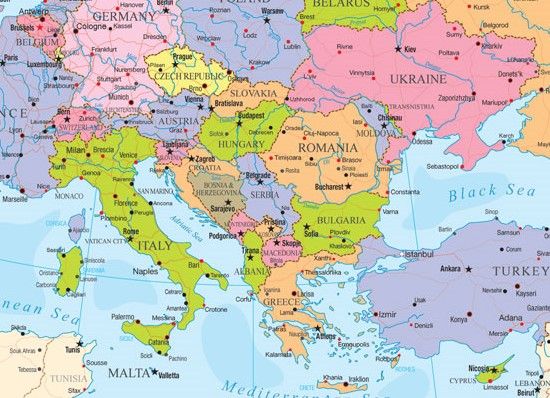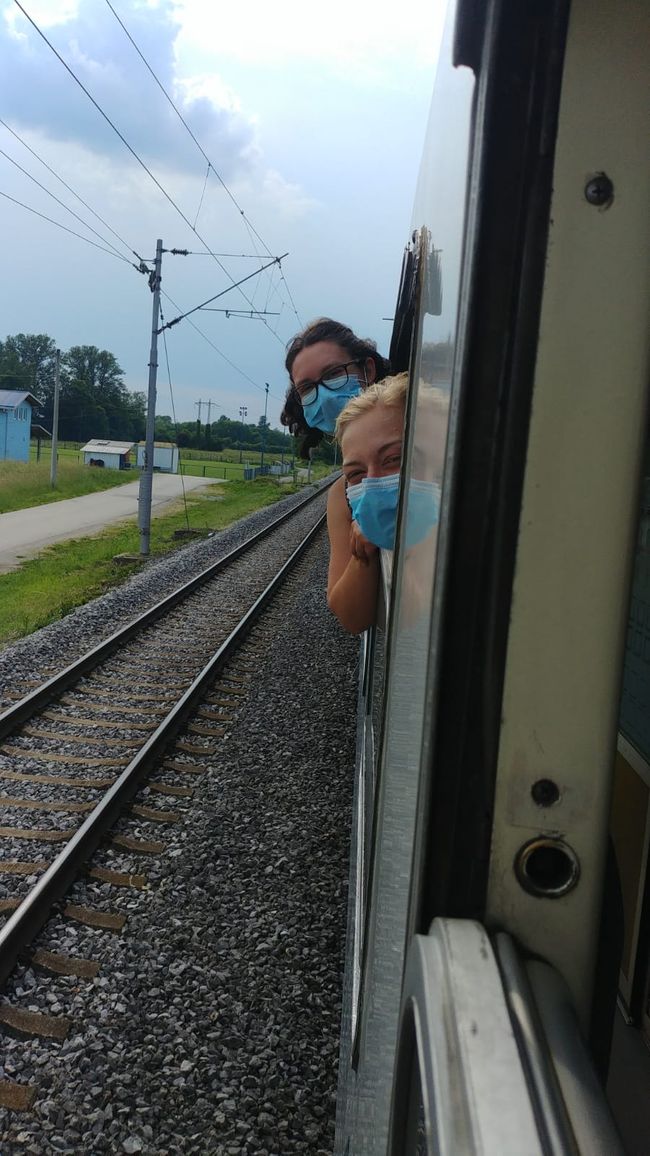Lecce and the beautiful cities of Puglia (Stop 25)
प्रकाशित: 02.08.2021
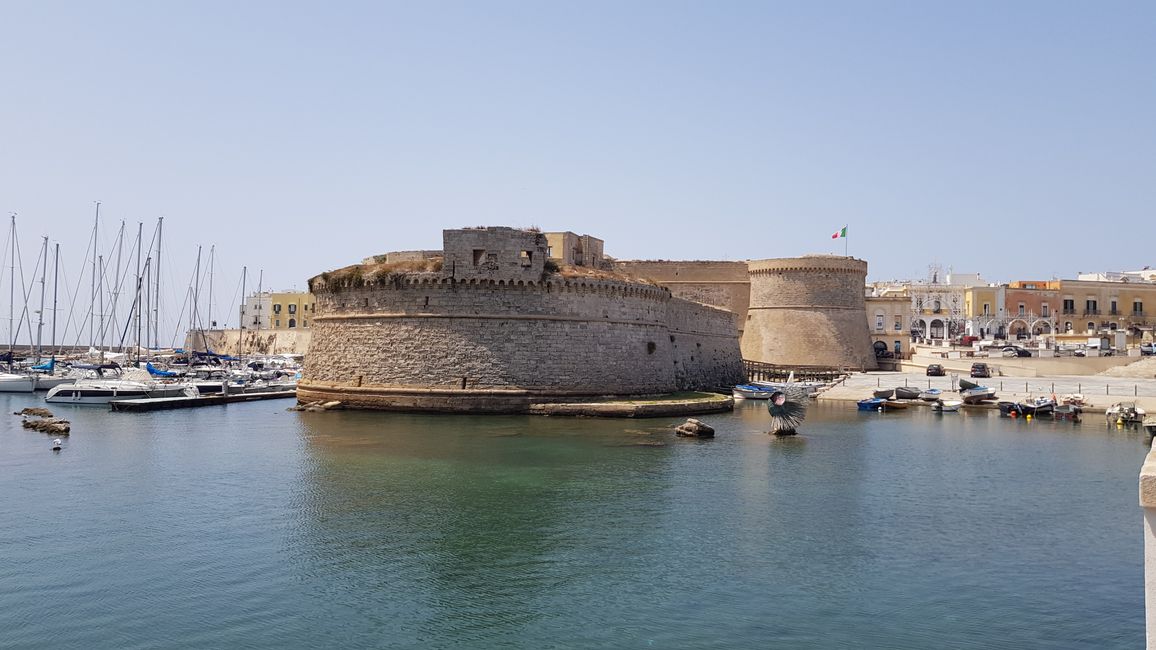
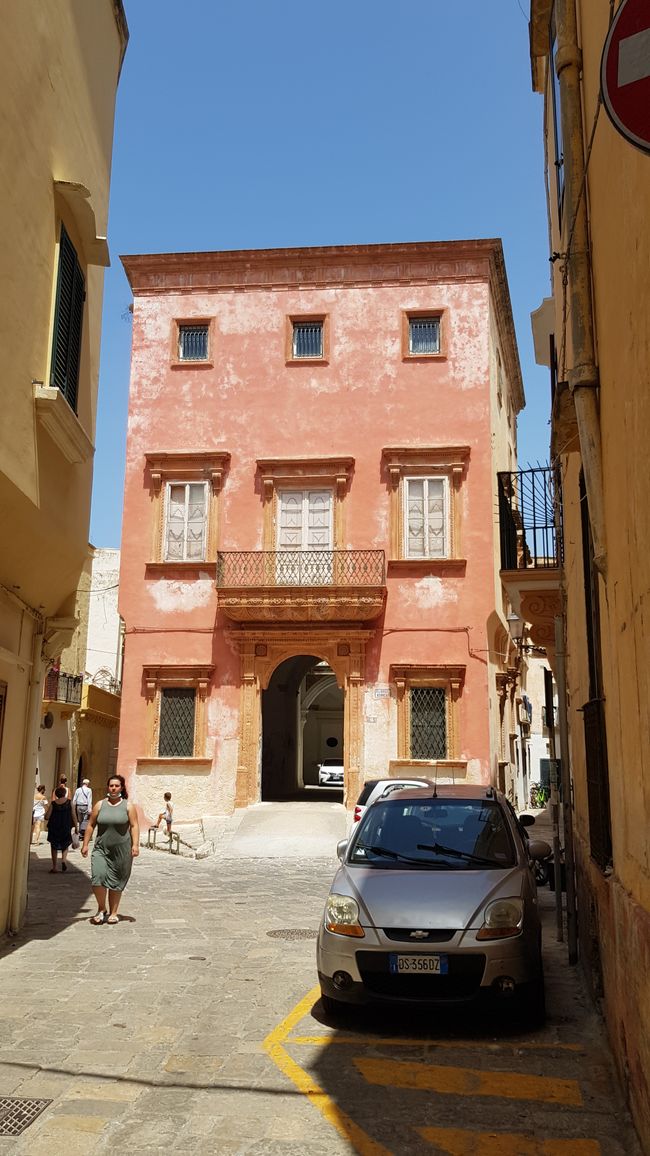
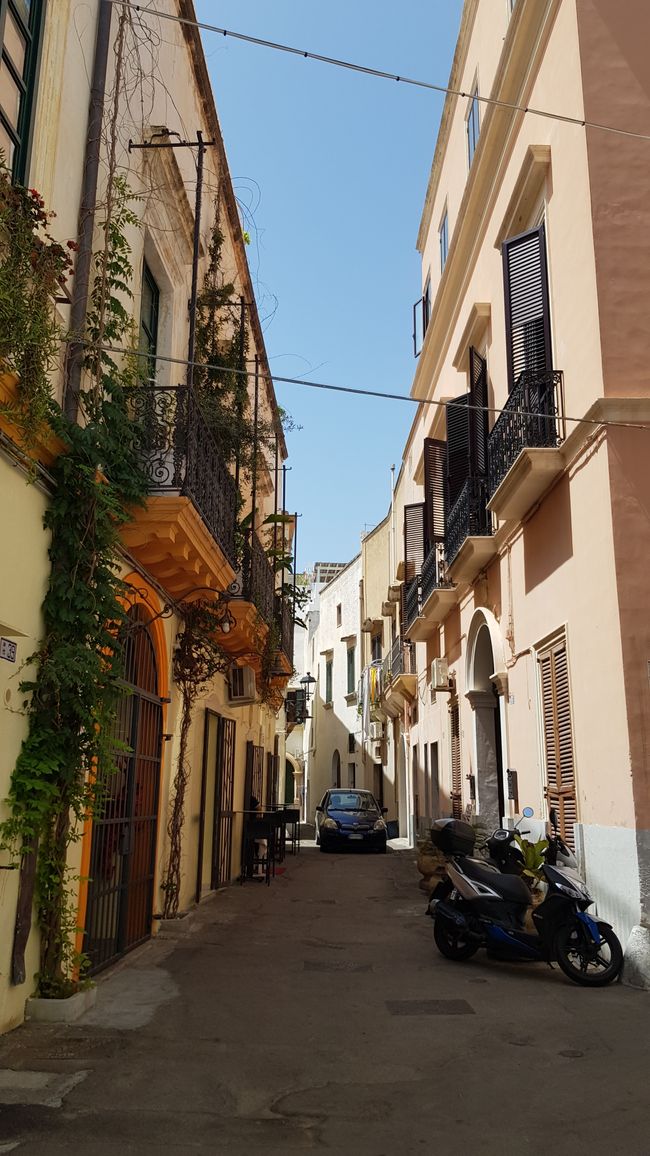
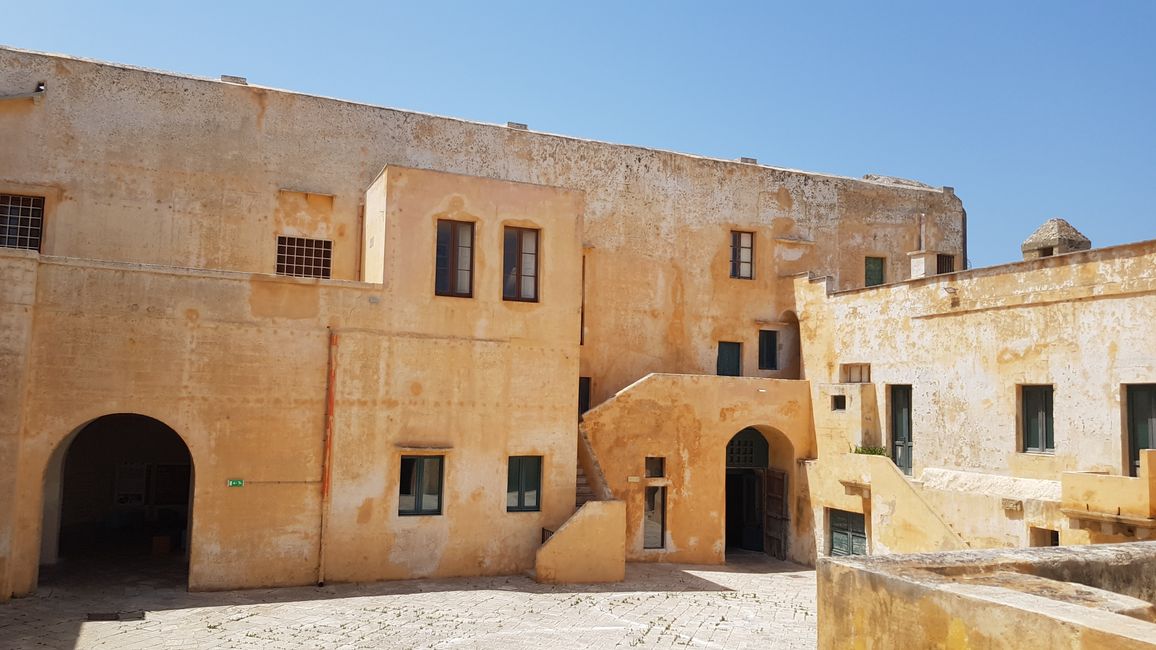
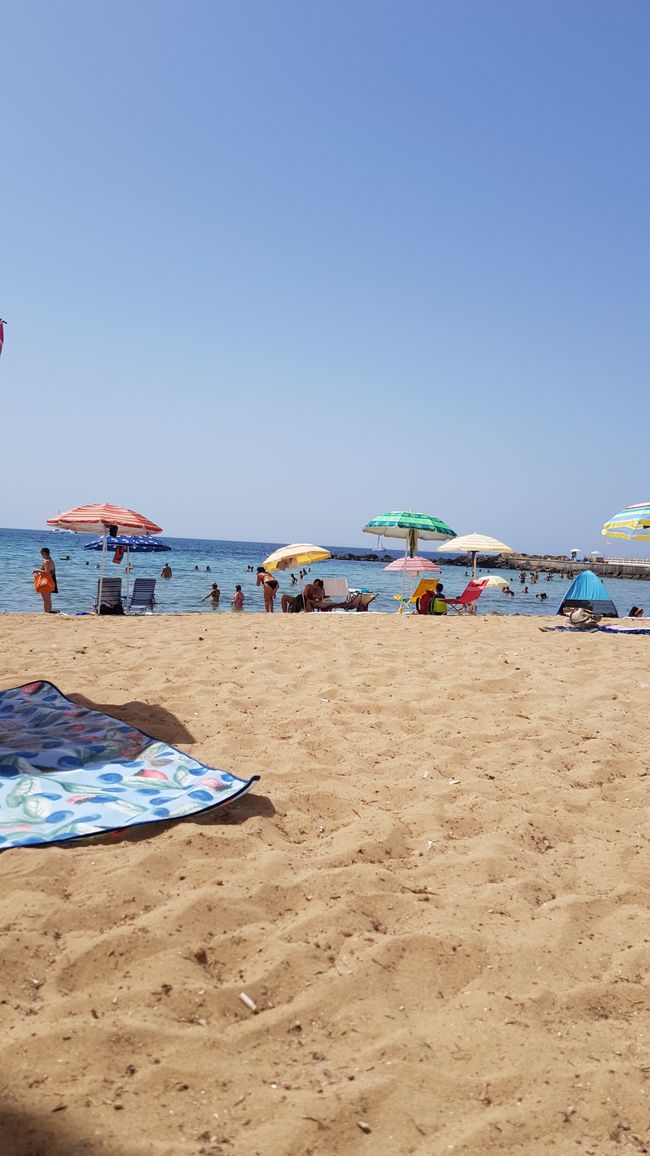
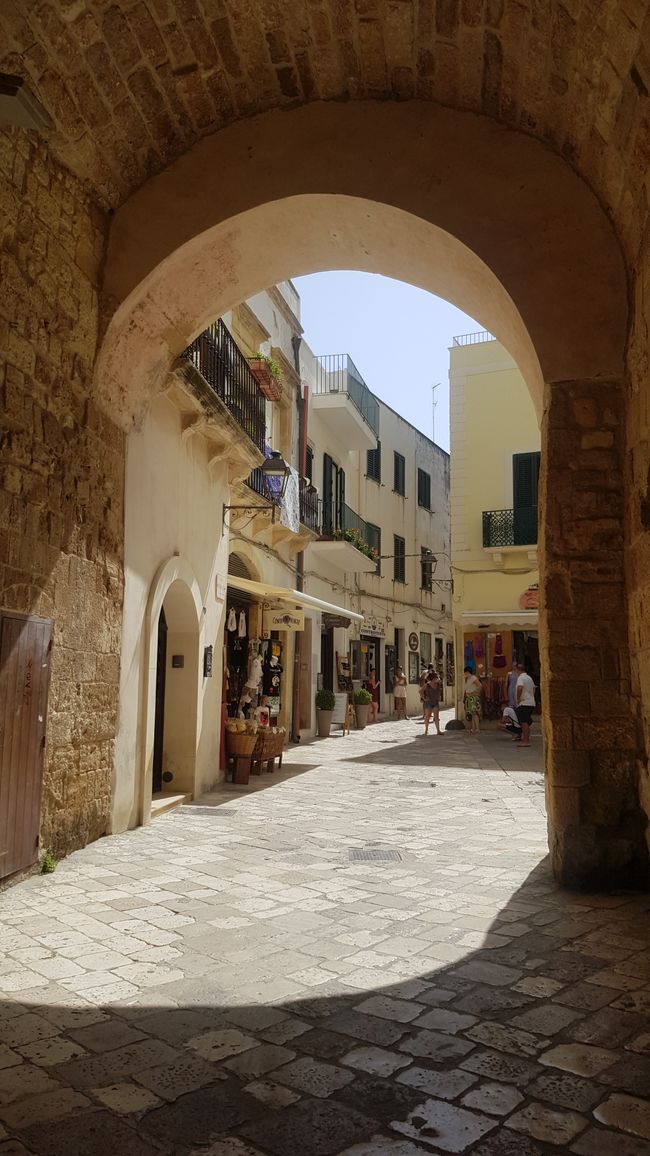
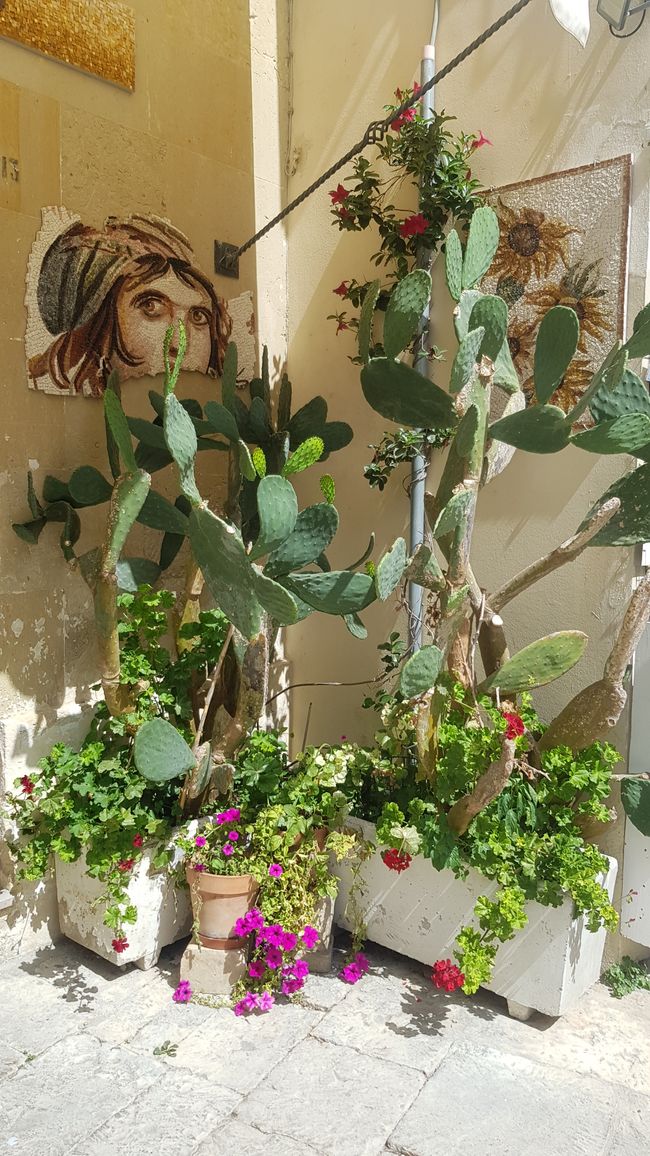
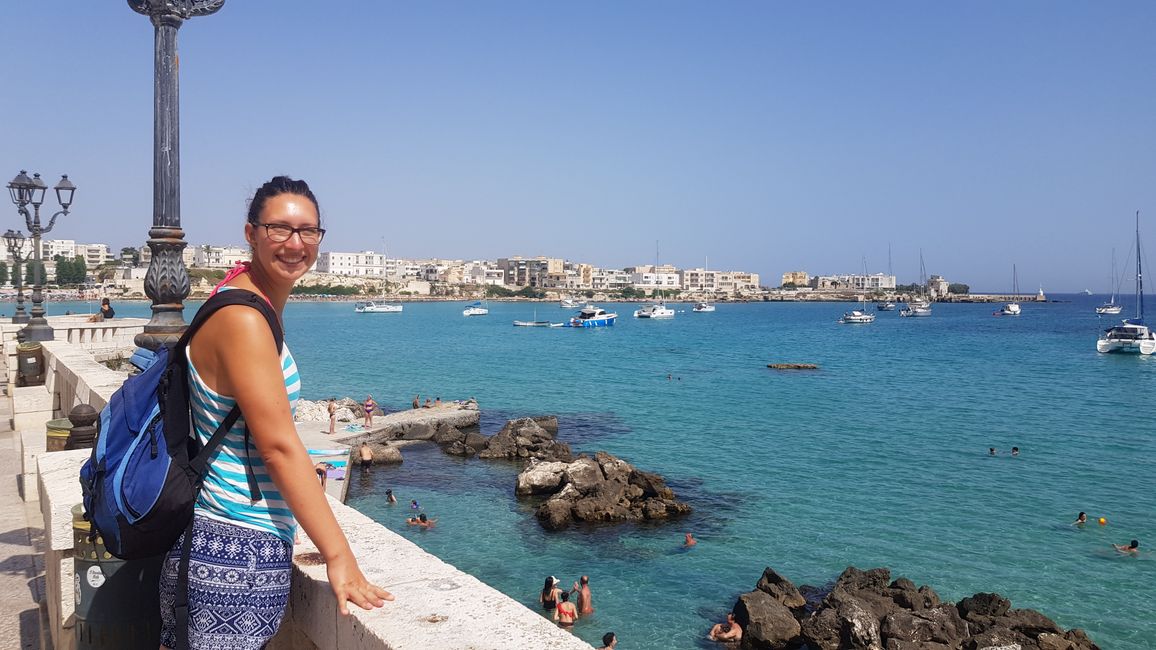
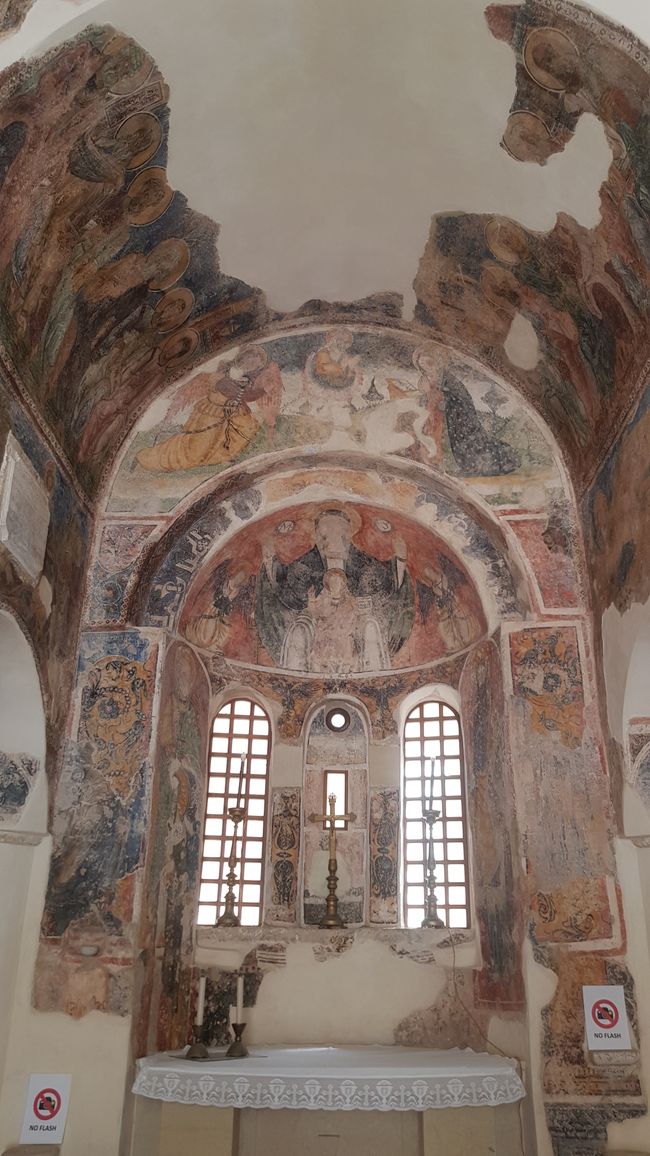
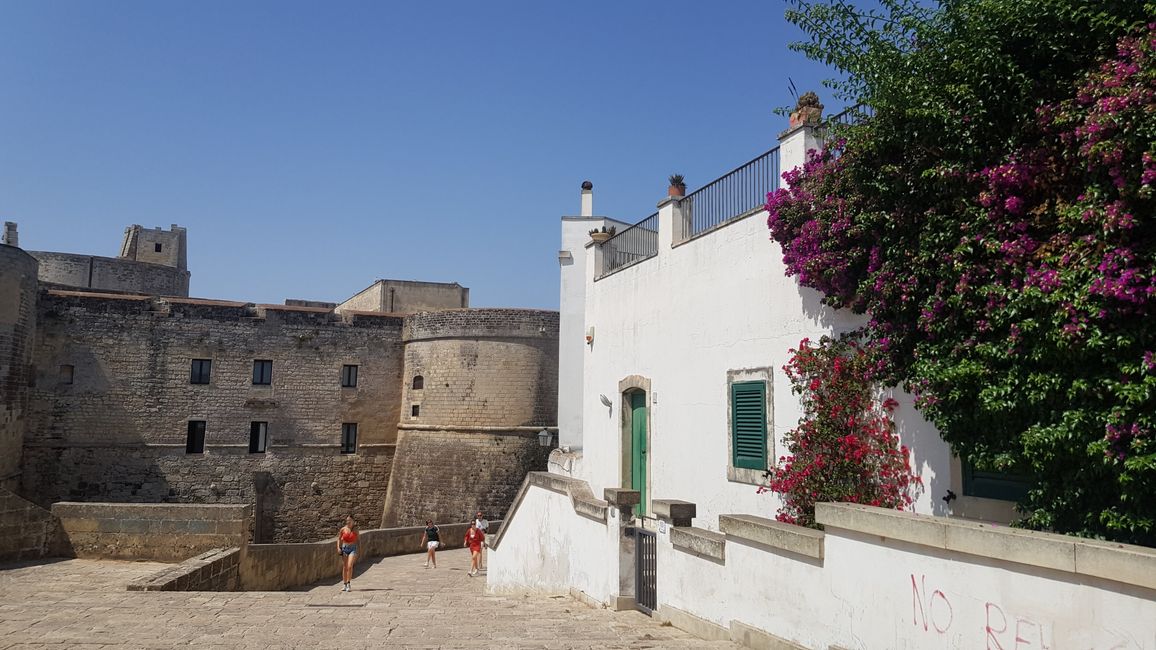
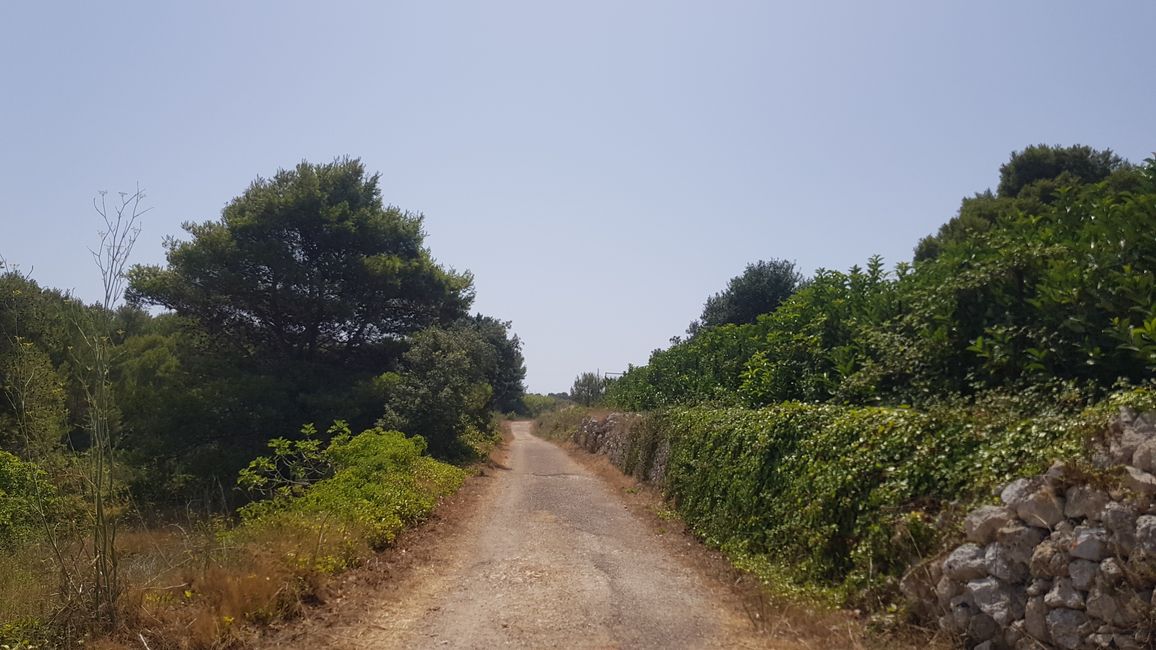
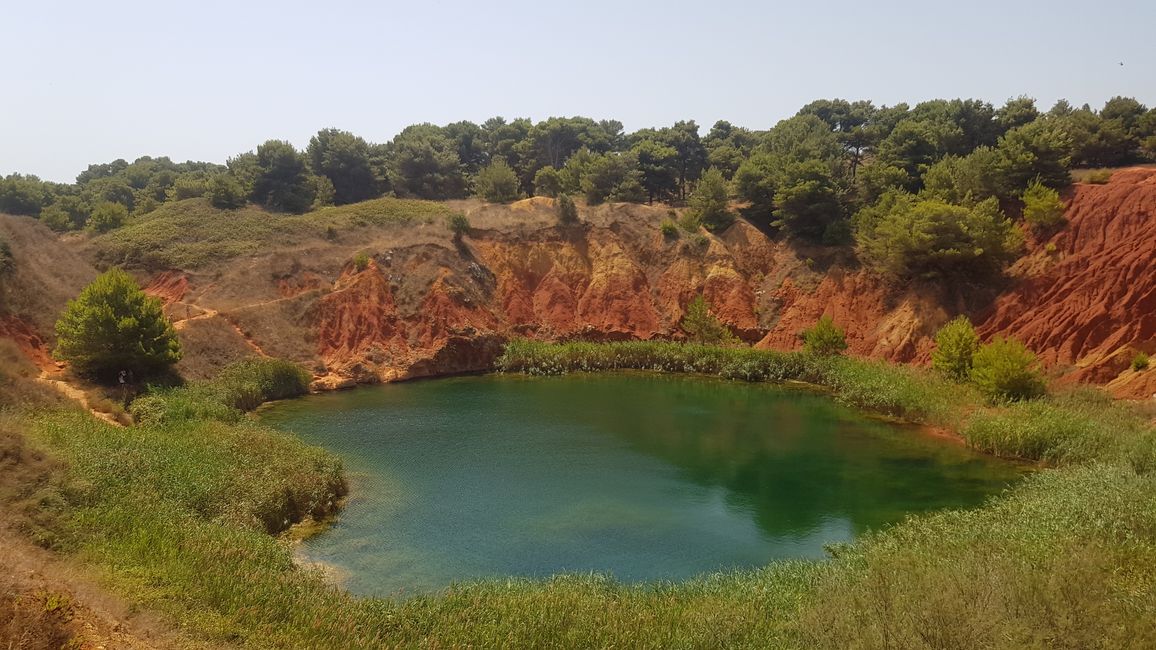
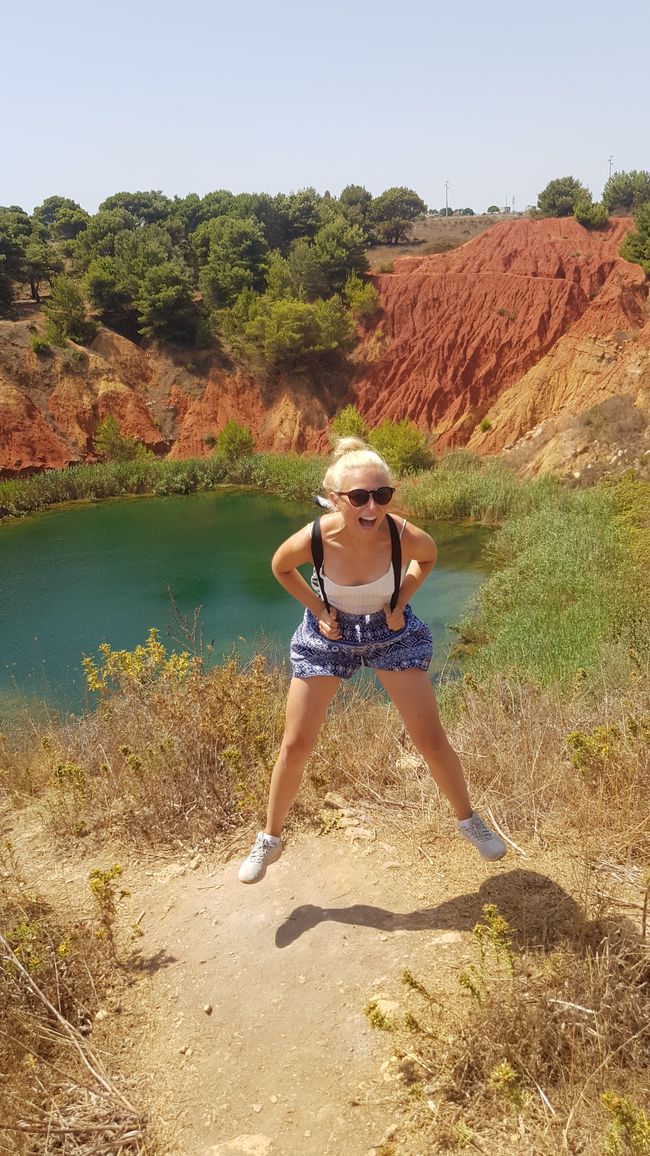
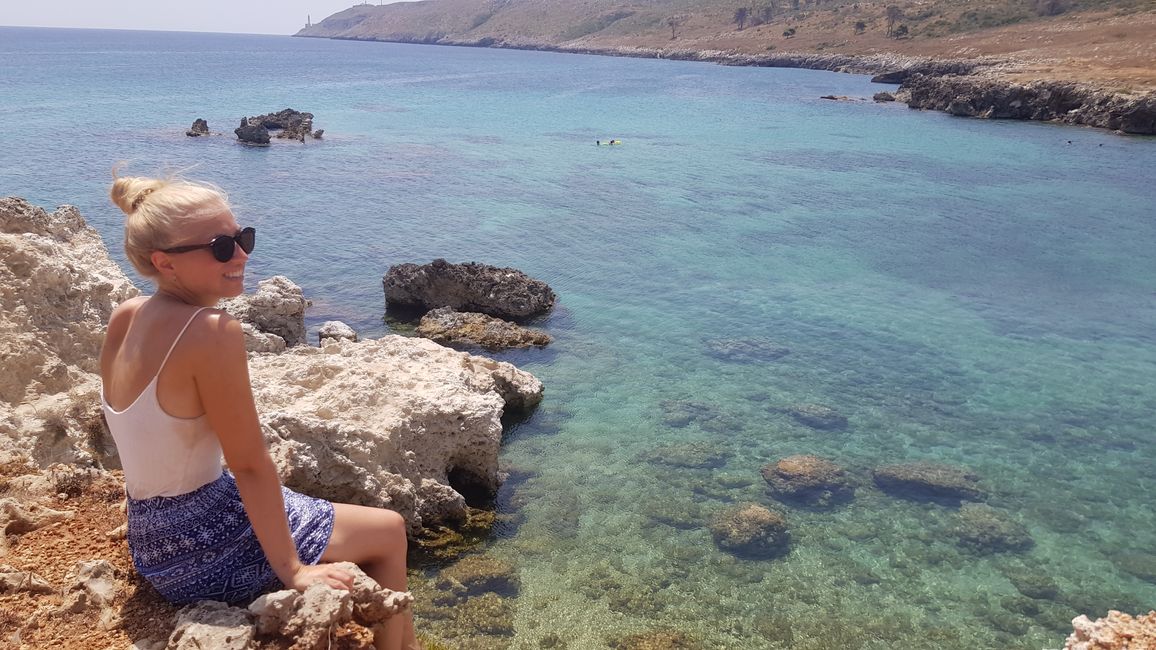
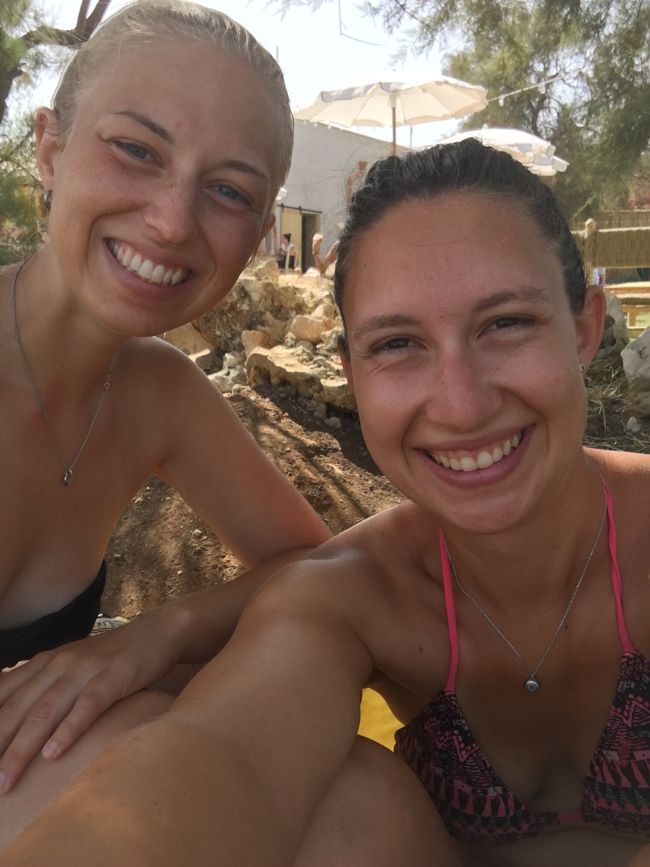
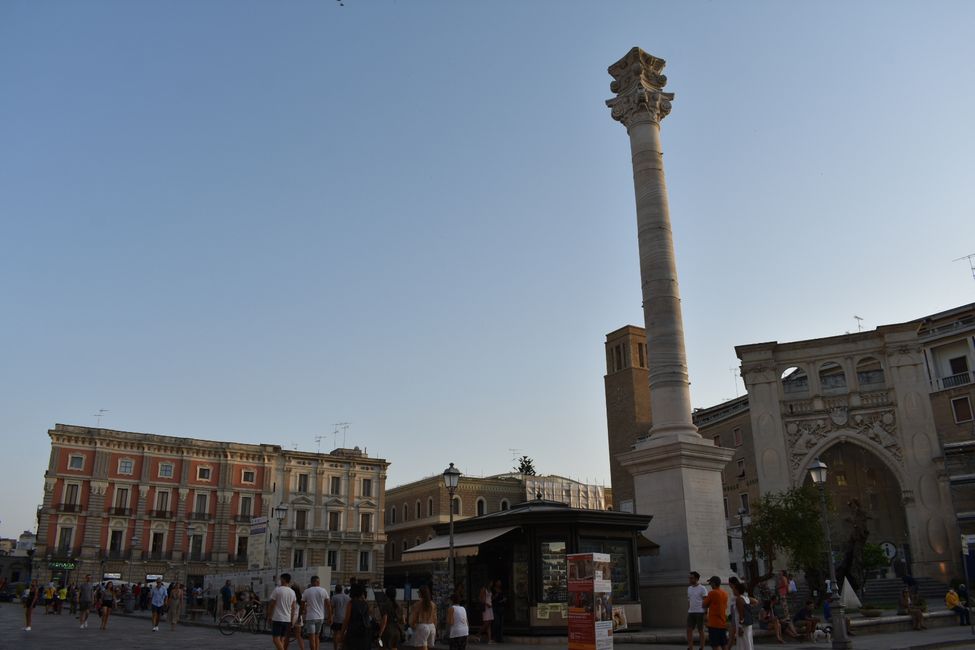
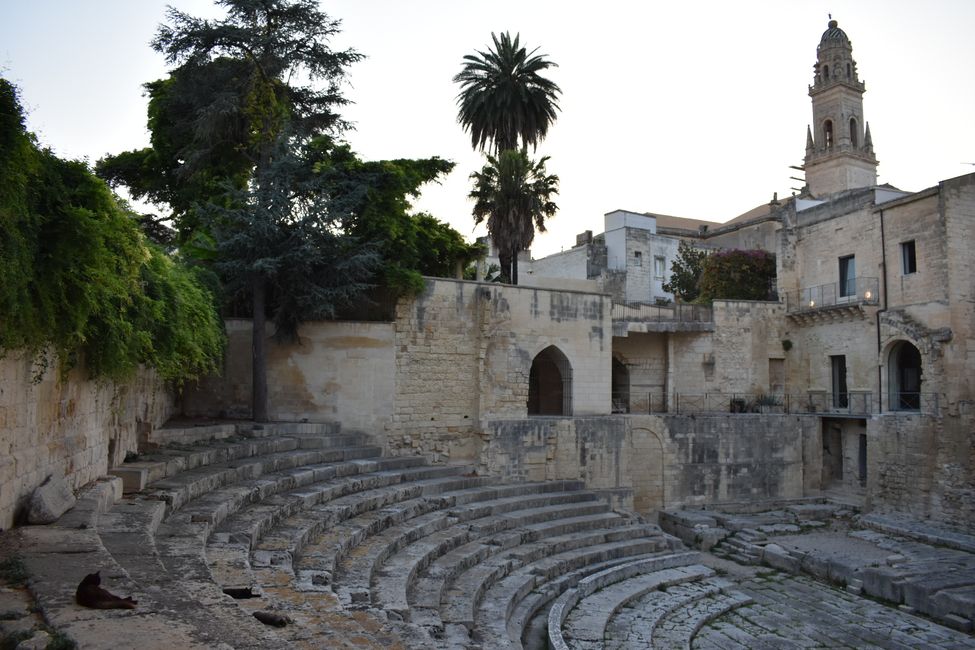
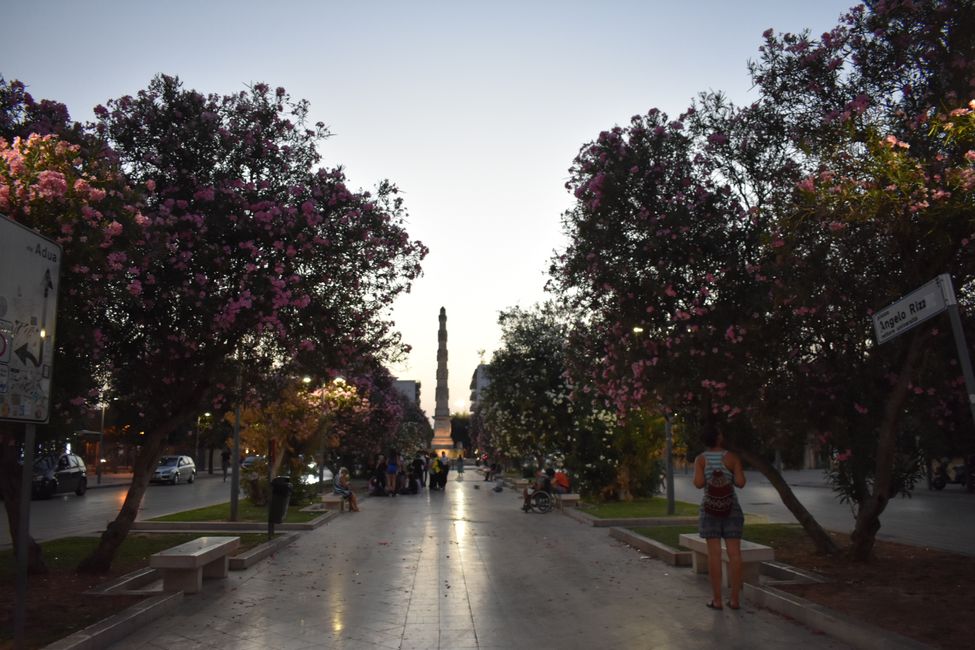
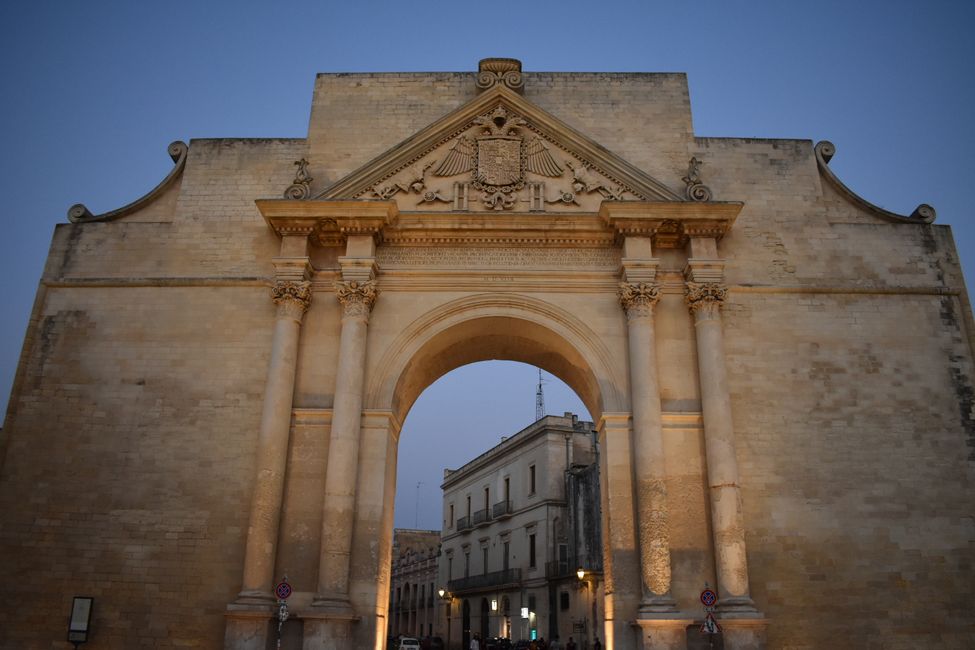
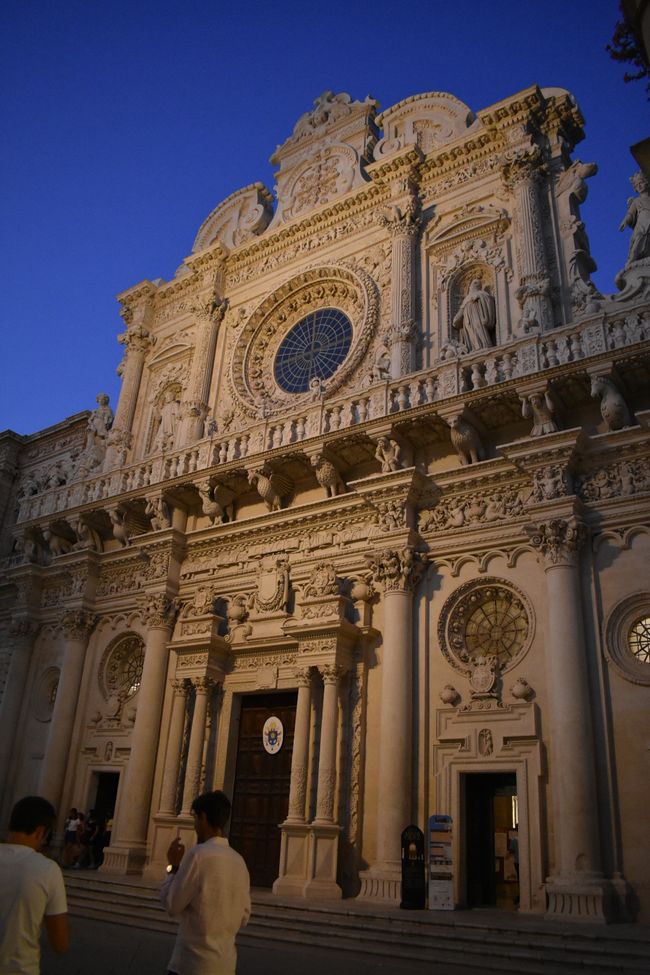
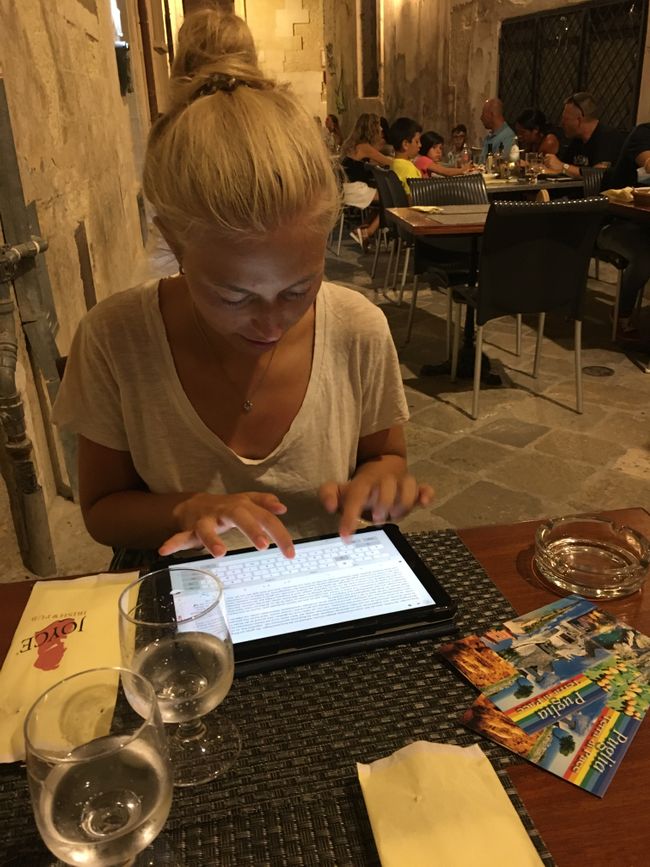
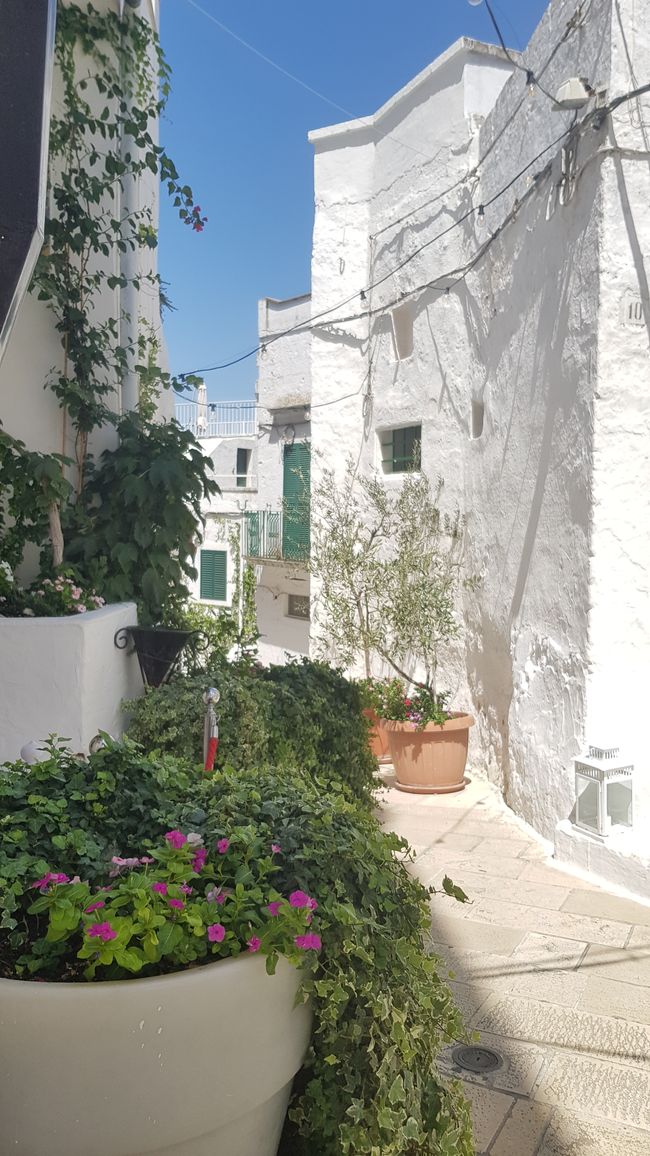
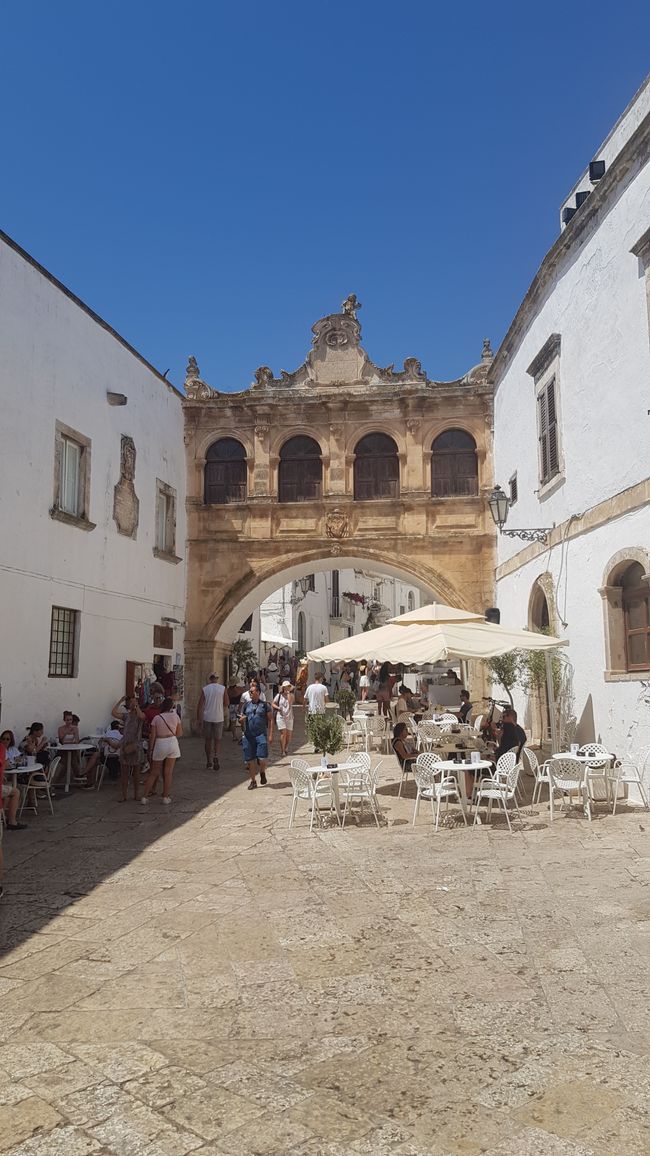
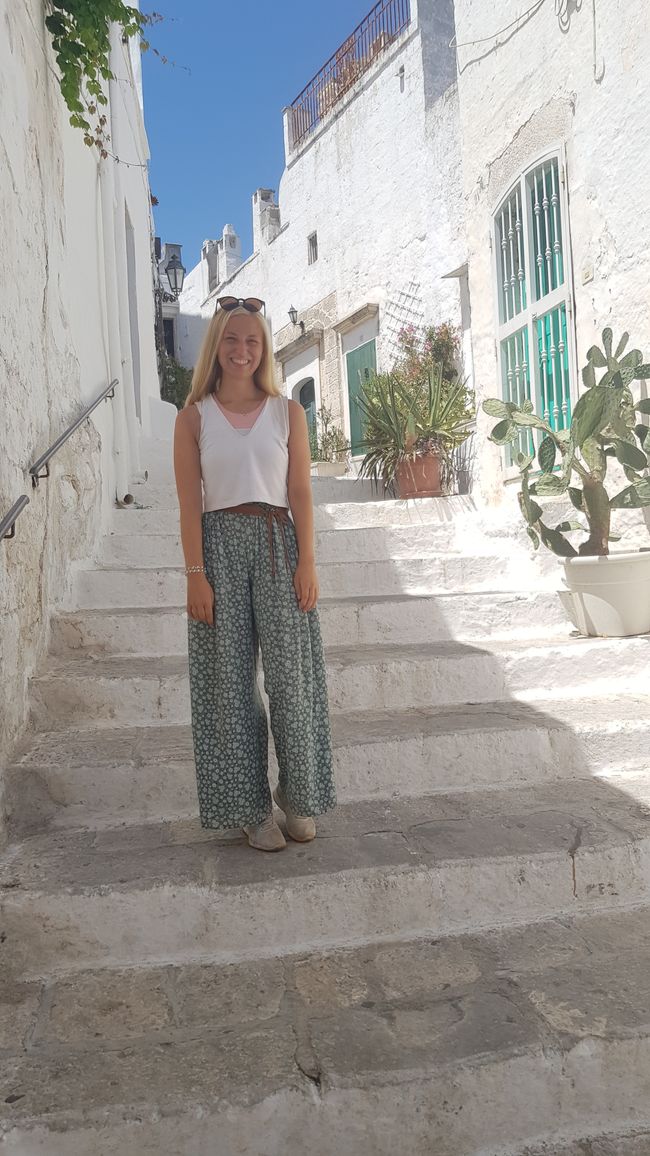
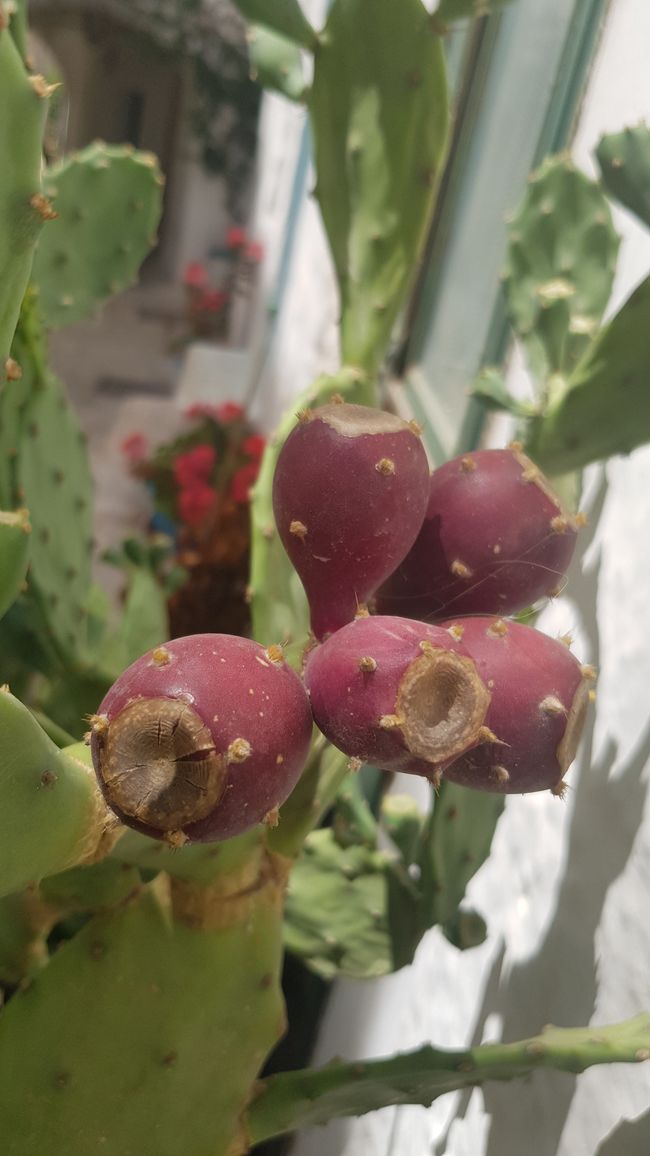
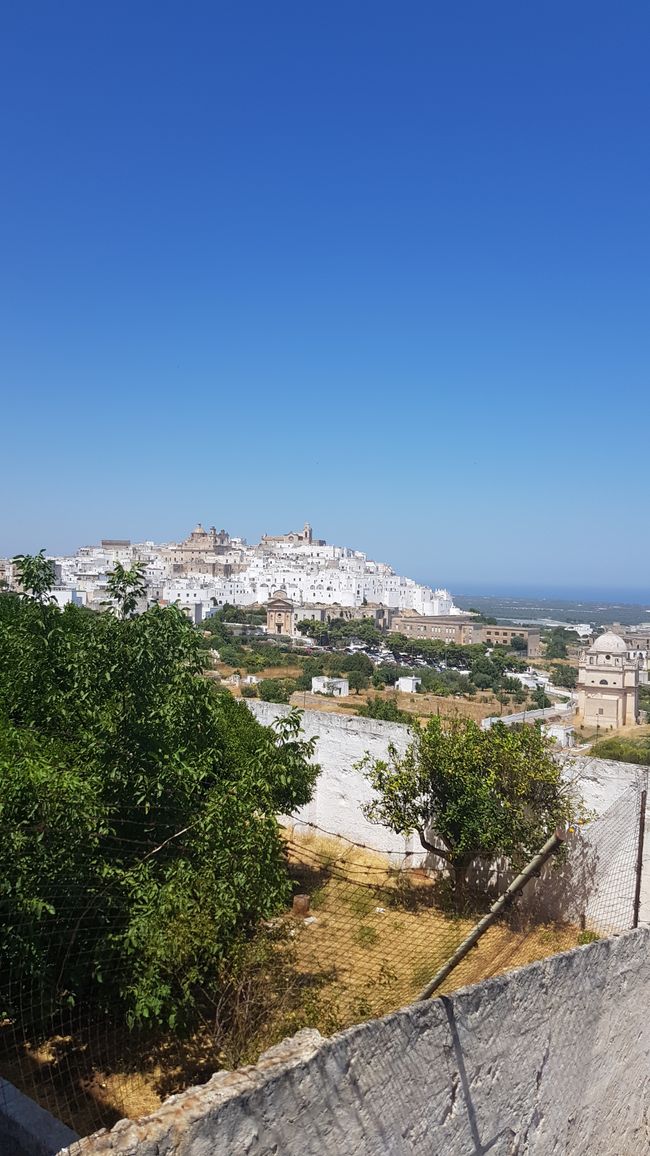
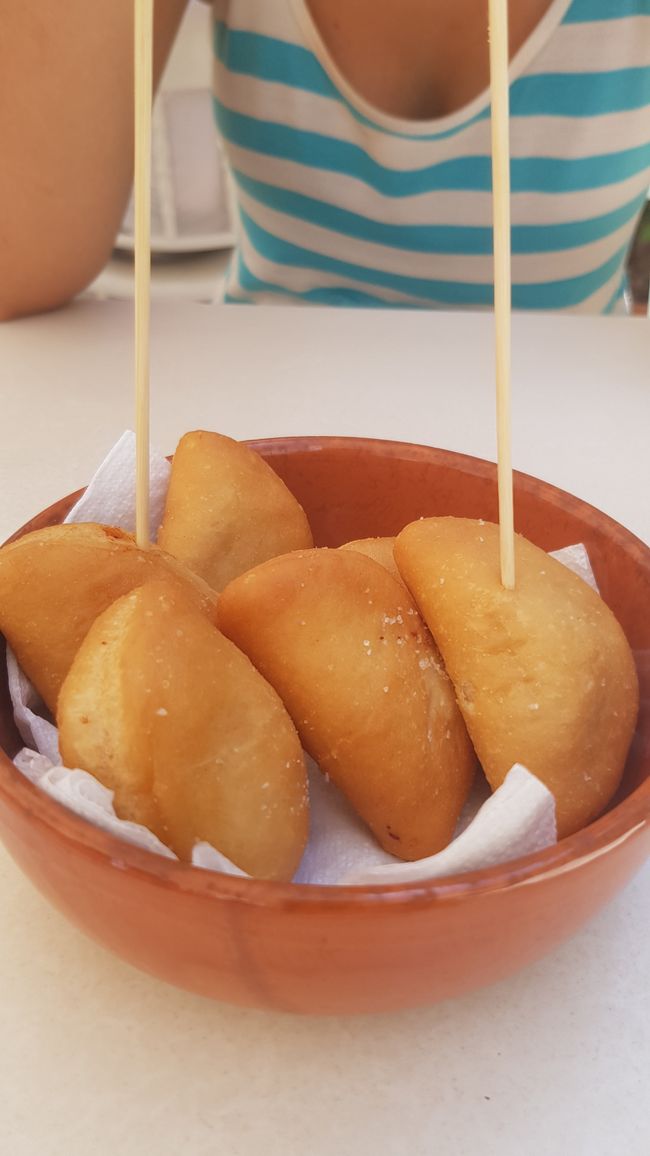
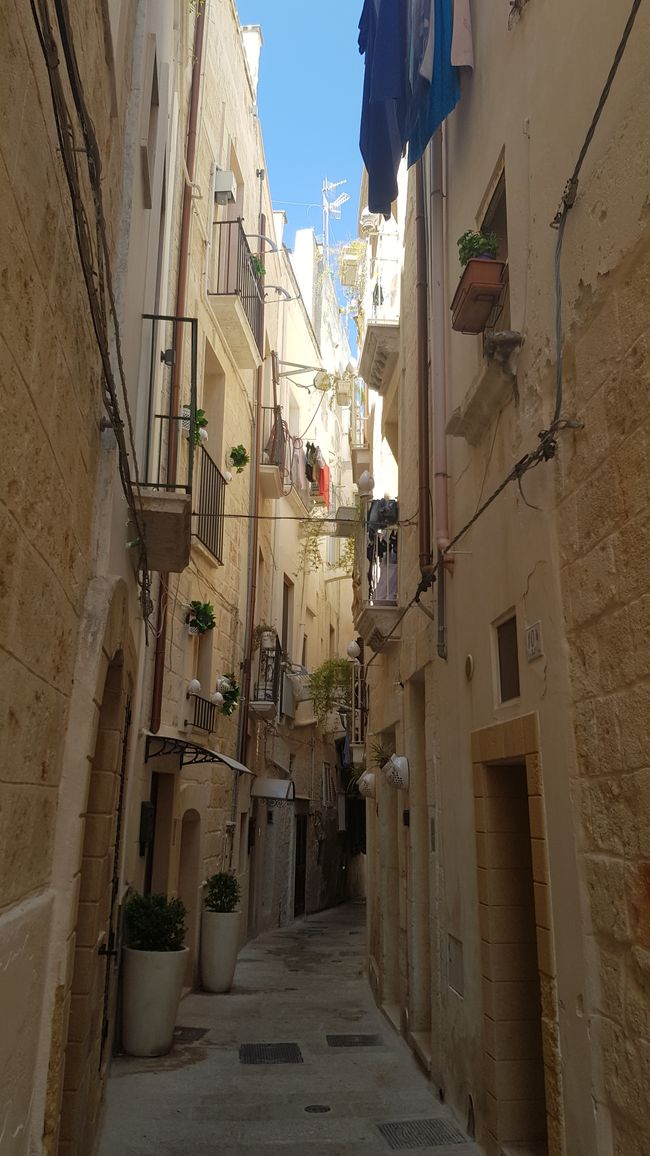
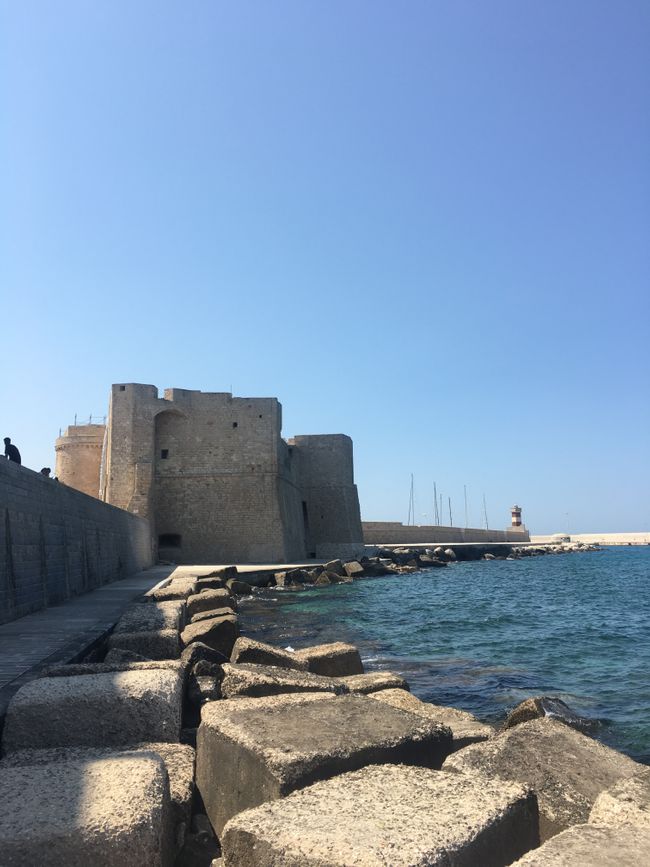
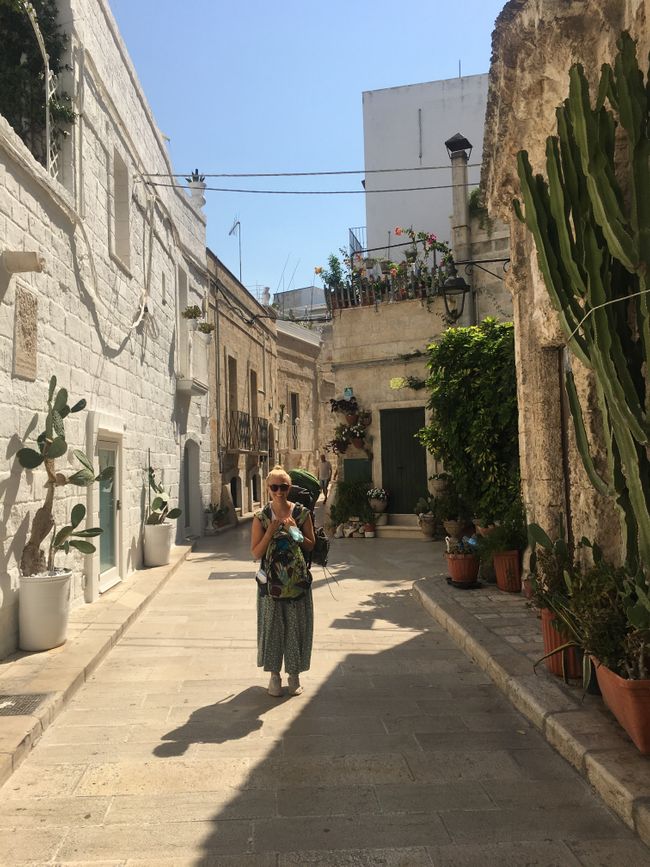
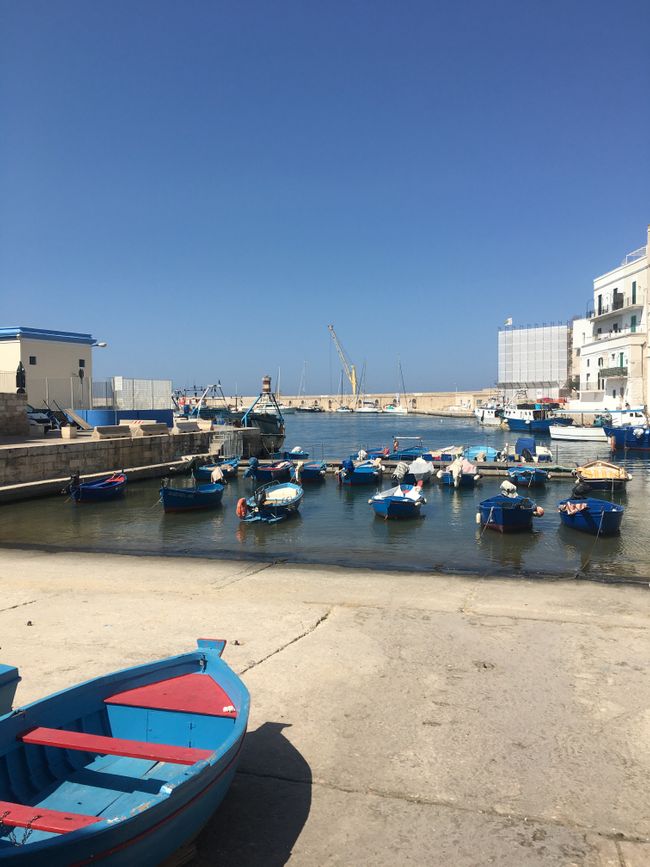
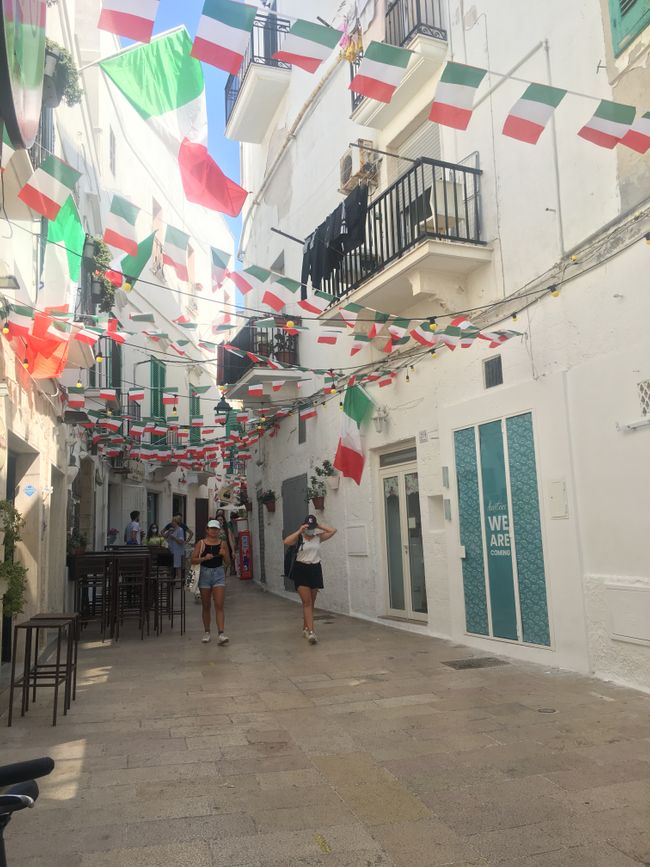
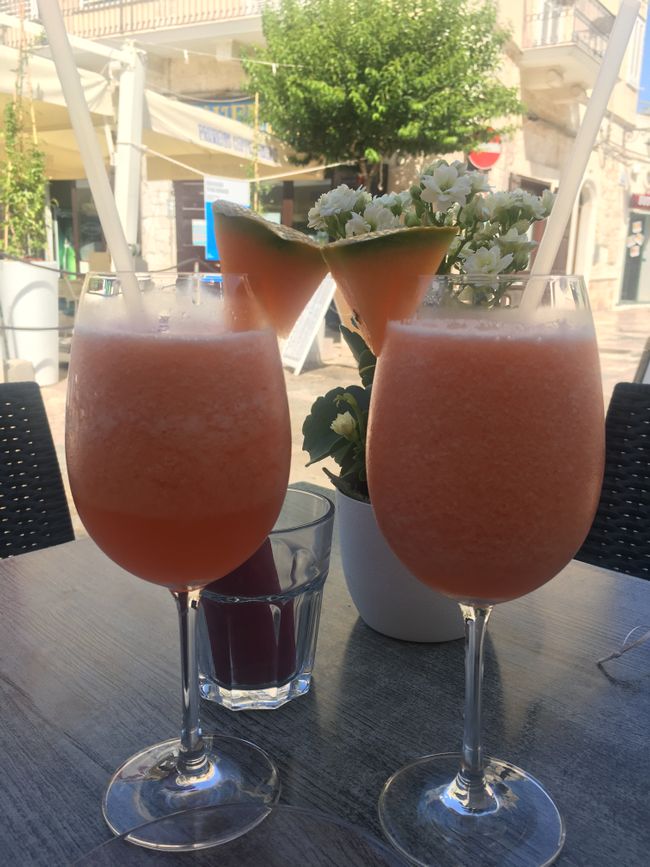
समाचारपत्रस्य सदस्यतां गृहाण
We arrive in Lecce even in darkness. Lecce is an important city in Apulia and has just under 97,000 inhabitants. According to legend, it was founded in the 12th century BC, although the actual founding is unknown. Under Charles V, Lecce was heavily fortified and designated as the administrative center of Salento. At that time, the old town of Lecce also acquired its characteristic baroque appearance. A soft tuff stone is mined in the surrounding area of Lecce, which led to the rapid spread of the Lecce Baroque style. That's why the city was also called the Florence of the South. The baroque style can be recognized in many buildings in the old town. Our bus drops us off at Porta Rudiae, one of the three city gates leading to the Centro storico. The old town is very lively and we soak up the pleasantly bustling atmosphere on our way to our accommodation. Our hostel is located directly on the centrally located Piazza Sant' Oronzo. After we have dropped off our things, we take the rest of our picnic downstairs and enjoy the atmosphere once again. There is live music and we especially enjoy the show put on by four teenagers breakdancing. It no longer surprises us that Yasmin always raved about Lecce at night. Pretty good start. But we are tired and have a tight schedule for the next few days, so it's time to go to bed!
The next day starts with breakfast at the bar next door. We enjoy soy cappuccinos and croissants and then make our way to the train station. Yasmin recommended Otranto and Gallipoli to us in advance, and since the connections to Gallipoli are more convenient, we decide to visit there first. The round trip train ticket costs us less than €9 per person. However, the train is quite crowded. After about 1 hour and 20 minutes, we arrive at the final stop Gallipoli. You can fill your water bottles in front of the train station. It costs 5 cents per liter (normally it has always been free), but you can even get sparkling water if you want. We immediately make our way to the old town, which is about a 15-minute walk from the train station. Gallipoli has about 20,000 inhabitants and is located on the Gulf of Taranto at the southwestern end of Apulia. The old town is situated on a rocky island and is connected to the new town by a bridge. The city was founded by Greek colonists as 'Kallipolis', which translates to 'beautiful city'. The current name is derived from that. At the entrance to the old town, you can enter the Castello through the market, the former fortification. We decide to pay the €6 entrance fee and educate ourselves a bit more. We found the significance of olive oil in Italian trade particularly interesting. Harbor cities thrived due to the oils in the markets for lamps, soaps, and food. On the upper floors, there is also a beautiful view over the port of Gallipoli. The castle also houses various art and cultural exhibitions. There is also a light show under a dome inside the castle, which is pretty cool. We also stroll again through beautiful alleys, passing many bars, shops, and restaurants. Taralli is constantly offered to us for tasting. Well, nobody knows that our backpacks are already full of them. We also visit the Cathedral of Santa Agatha. The interior is very dark, but it is not only impressing because of the highly decorated ceiling, but also due to several large wall paintings. We actually wanted to go to Baia verde, but we wait in vain at the ice cream parlor next to the bus stop. In the end, we go to the city beach, which is crowded and offers little shade. The water is also quite warm and not as clean as we are used to by now. However, we are glad for the break and relaxation. Eventually, we casually stroll back to the train station, maybe a bit too leisurely, because we no longer have time to validate the ticket. But it's not so bad. It's a bit annoying that the air conditioning on the train is not working and we start sweating again.
We still need to do the laundry one last time, so we go to a laundromat. While the washing machine is running, we make a short detour to Piazza Mazzini, where there is a large fountain, which we both don't find particularly beautiful. The laundry took us a lot of time, which is why we decide to postpone the sightseeing to the next day. And because we are hungry. We can't wait!
At Doppiozero near Chiesa Santa Irene, we can only find a place indoors. We treat ourselves to a glass of Rosato and Spaghettoni with the best tomato sauce we have ever had. The pasta was also the best ever. Incomparably delicious. Before that, we try Pittule, a savory pastry from the region. We are incredibly full and satisfied, and above all, well prepared for the next day in Otranto.
We wake up a little earlier because we still want to have enough time for Otranto and Lecce. But because we always tend to dawdle, we have to hurry to catch the bus. So today we have Cappuccino and a croissant to go. Luckily, this bus is also a few minutes late. The ticket costs less than €6 per person for a round trip. The bus is quite crowded again - seems to be a popular destination. After almost 1.5 hours of travel, we arrive at the port of Otranto, which is located at the southeastern tip of Apulia. From here, it is not far to the old town. We enter the Centro Storico through the city gate. We immediately come across a large lively street with small shops on the left and right. We let ourselves drift a bit and head towards the Cathedral of Santa Annunziata. From the outside, you can recognize the classic gothic style. Inside, however, the cathedral is rather plain. The walls are predominantly white and little decorated, only the ceiling is intricately adorned with white and golden patterns. Then we set out to find the church of San Pietro, which is not so easy to find. It seems that all the churches in the old town are well signposted except the one we're looking for. Finally, when we find it, we are a bit disappointed from the outside. It looks very small and inconspicuous. But as soon as we enter, we are immediately fascinated by the beautifully painted walls, which are only partially preserved. So the search was definitely worth it.
To get a nice view of the sea and the city, we go to the Torre Matta on the edge of the old town. After that, we stroll through the alleys again and head towards the Castello Aragonese. There is a Banksy exhibition here, which Yasmin also recommended to us. €12 for the entrance fee was a bit too much for us since we are not really museum-goers. So we only take a brief look into the courtyard.
We would like to go to a less-visited beach today (Baia delle Orte), which Yasmin also recommended to us. This beach is outside the city and the last part can only be reached on foot. Not far from there is the Cava de Bauxite, which we also want to visit. We ask at the tourist information office for public transportation that can take us there. They tell us that there are no public transports going there, but the walk is supposed to be quite nice and not too long. Despite the heat, we embark on the approximately 35-minute walk, which will take us past the Cava to Baia delle Orte. The heat radiates from the path so much that we are even more looking forward to the later swim in the sea. We are delighted when we pass blackberry bushes at the roadside where we can briefly replenish our energy. The path continues past fields to the parking lot of the beach. From here, it is not far to our first destination, the Cava de Bauxite. It is a former bauxite mine where a clear water lake has formed over time. A very remarkable place! For us, this place feels like an oasis because the lush green of the plants stands out clearly from the red earth. You can climb up the steep sandy slopes around the lake. This way, you get different views of the turquoise-blue lake from different angles. We also go down to the water by the reeds. But it's swarming with mosquitoes there. Better hurry to the sea.
It's only a few more minutes on foot anyway.
Once again, we find ourselves on a wonderful rocky coast. We probably don't need to mention that the water is super clear XD. To get to the sea, you have to climb down the rocks. We discover that a beach bar seems to have just opened there recently. Good for us, as we don't have enough water anyway. We find a shady spot nearby. You can slowly and shallowly step into the water over slightly algae-covered stones. Even when swimming from the coast towards the open sea, there are stone banks just below the water's surface where it is only ankle-deep. It is also very nice to sit directly on the stones in the water at the shore. From there, you can observe the small waves washing into the already hollowed-out stones. And you can see collections of small shells sticking to the rocks. So we spend a wonderful afternoon at a slightly different beach where we feel incredibly comfortable. To make our way back to the city, we stock up on water again and walk back through the afternoon heat. We are back in Otranto faster than expected. Since we still have so many dishes and delicacies from Apulia on our list, we look for a snack bar. There they offer Pucce (round sandwiches) with tomatoes, cheese (Burrata or another regional cheese), and lots of olive oil. It is quite filling though for a small afternoon snack. With full stomachs, we have to hurry to the bus stop. Luckily, the express bus only takes 45 minutes back to Lecce.
In Lecce, there are also a few churches and the three city gates that we would like to visit in daylight. The day before, we already planned a route that ends at the Basilica, where there are many restaurants for dinner. But before that, we need to quickly go to our hostel to book our accommodation for the upcoming night. As always, we are running late for Italy, so we have to change our original plans several times. In the end, we decide against Matera and for a trip to Naples with two stops in Ostuni and Monopoli. Actually, we wanted to arrive in Naples one day later. After we finally find something suitable, we set off, albeit later than planned. Our first destination today is Ostuni, known as the 'white city' - città bianca. Ostuni is a municipality with 31,000 inhabitants and is located about 8 km inland from the Adriatic coast. Unfortunately, the train station is quite far outside the city. We are glad to find out that there is a bus that takes us to the Centro storico for only €0.90 per person. There, we ask at the tourist info where we could leave our backpacks. Long story short, we are sent from one place to another until we finally ask in a bar, where they kindly put them behind their counter. The bar is located at Piazza della Libertà, and we can make our way over the steep hill of the old town. 'White city' is a pretty accurate description, we think. In addition, the doors and shutters are often painted green or blue. This also reminds us a bit of Greece. The hill on which the old town is located is quite steep, with the castle standing at the highest point, which is only partially preserved. There is also the Cathedral of Santa Maria Assunta in cielo. The other well-known church is dedicated to Santa Vito Martire but is mainly known for its beautiful dome. The narrow stairs and streets in white, interspersed with many plants, are enchanting. It is very hot, but there is another viewpoint that we don't want to miss. It is only a few minutes' walk from the old town and is definitely worth it. The white hill towers in front of the more distant sea. But we don't have much time left, so we snack on some Panzerottini and then head back to the bus. Just to be on the safe side, we ask again for the bus schedule and location - we would ALWAYS recommend that in Italy... just to make sure everything goes smoothly and we arrive on time for a fast train back to the train station. Normally, you need a seat reservation for the fast trains, but in Ostuni there is no ticket counter. So we get on the train, as it's only a 20-minute ride anyway.
The train ride continues north, passing through large fields, including olive, wine, and again surprisingly many cacti. This type of cactus has caught our eye a lot in Apulia. It seems to adorn not only city centers but also grow wild in fields. We have seen these cacti a lot on Amorgos as well. They also bear prickly pears. Delicious. We should try them someday.
We arrive in Monopoli, but once again, there is no possibility to store our luggage at the train station. We have no choice but to start exploring the city with our backpacks. In the Centro storico, we find a tourist information office where we get some information, but the luggage storage is too expensive for us. We have already walked almost everything anyway. Monopoli also has a beautiful small old town with many interesting streets and corners. We can only admire the sights from the outside again, this time because they take a lunch break until 5 pm. We walk past the castle through a city gate to the small harbor. Outside the city walls, we stroll along the waterfront, where there are again some bathers. They sunbathe on large blocks of rocks, which make a wild impression but were probably intentionally placed there (or?). Anyway, we already wonder how people safely get into and out of the water here. But today, swimming is exceptional for us, so we continue walking. We also stroll past the various churches until we are back at Piazza Giuseppe Garibaldi, where we take a nice break with a smoothie and review our experiences.
At some point, we walk back to the train station. Once again, there is no ticket counter in Monopoli where we can book seats for the fast train to Caserta. So we get on the train and turn to the conductor for help. But he says that the train is full and we have to get off again in Bari to take the next one. When we ask when the next train will be, he realizes himself that there is no train this evening. The train staff discusses a lot, but in the end, we are allowed to stay on the train and get the (probably) last two seats for €10 per person. Phew, lucky us. In Caserta, we also catch the train that takes us to Naples Centrale, where we arrive around 10:45 pm. The train station is huge, and our very nice and friendly host picks us up. We are glad that everything worked out in the end.
Apulia was definitely one of the highlights of our trip. The cities, nature, people, and the food amazed us.
समाचारपत्रस्य सदस्यतां गृहाण
उत्तरम्
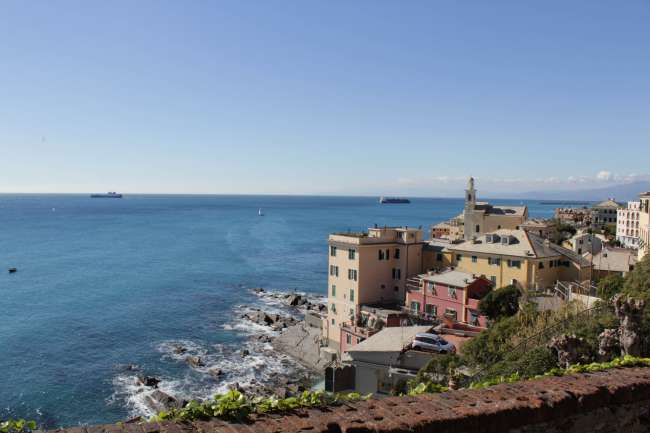
यात्राप्रतिवेदनानि इटली
